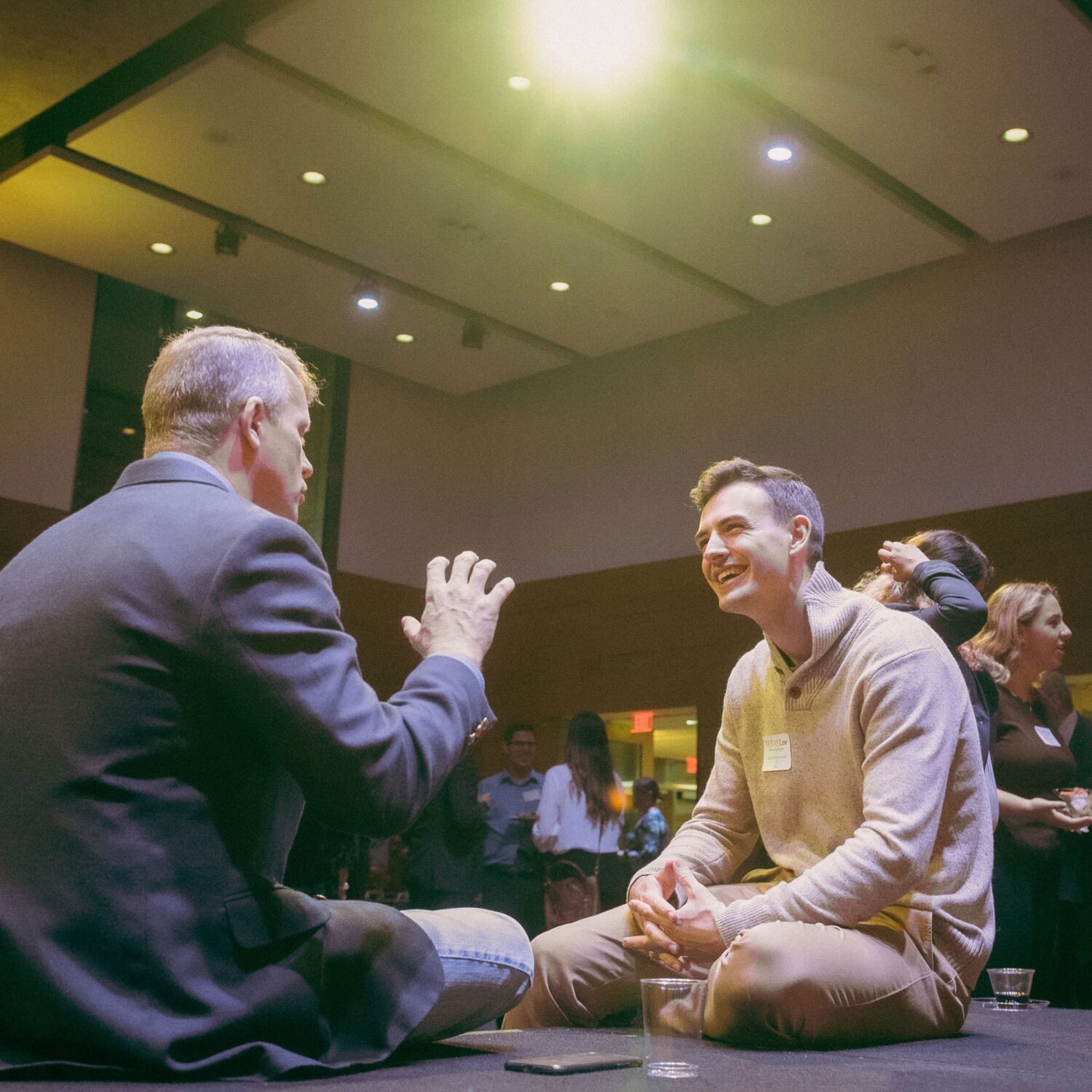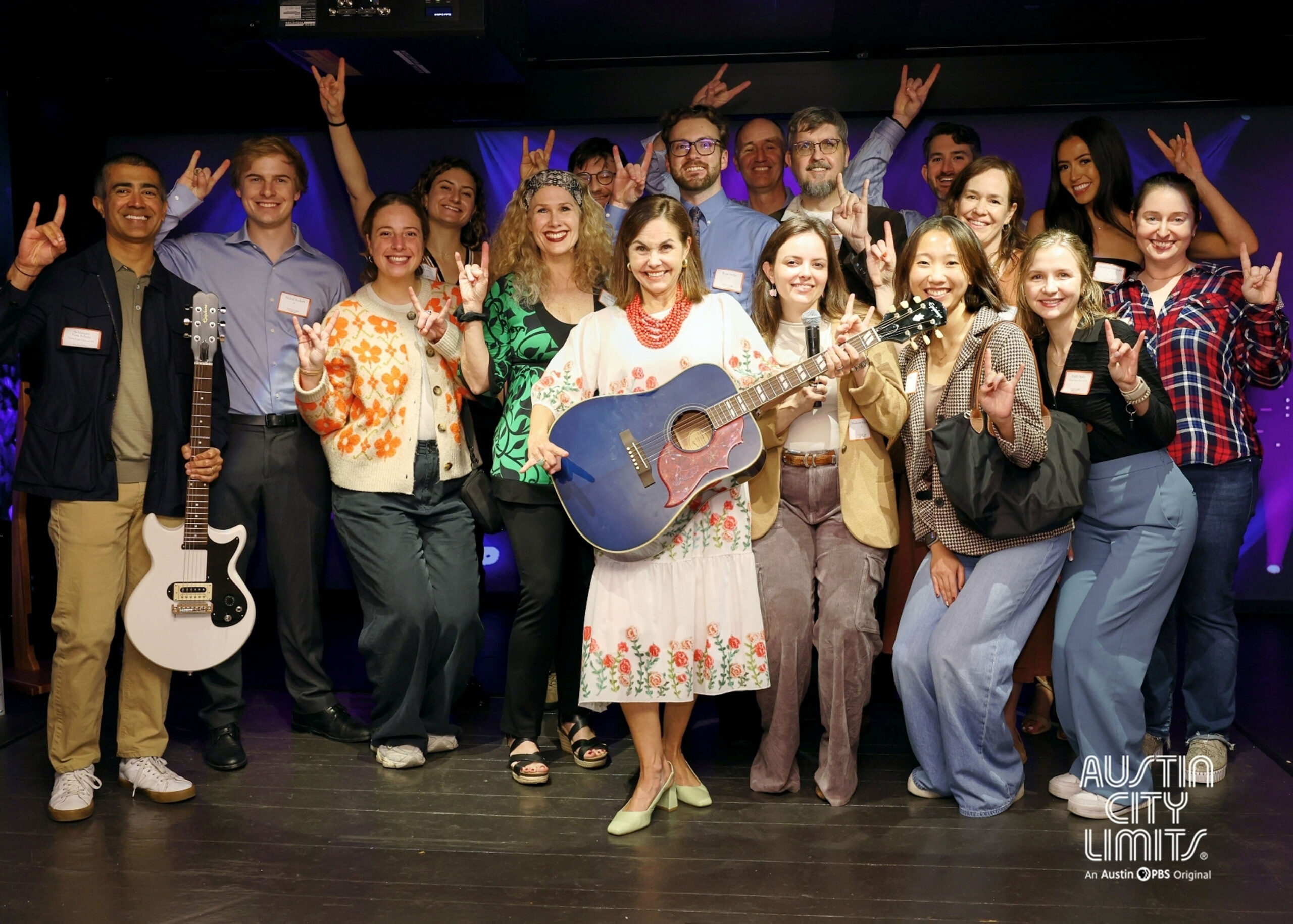The mentoring program is still growing after 10 years.
By Christopher Roberts

It was June 2018, and Brian DiFilippo ’20 was in his first summer clerkship at an oil and gas litigation firm when he was asked to complete a deposition summary. “I had no prior experience and no direction from the person who assigned me the task,” DiFilippo recalls. A feeling of panic began to rise in his throat.
But DiFilippo suddenly realized there was someone who could help: his Texas Law mentor, Michael Bernstein ’14.
“I sent Michael an S.O.S.,” says DiFilippo. “Within minutes, we were on the phone, and he coached me on how to approach the project and what to do if I was still confused.” When DiFilippo reported back to his bosses that afternoon, he had aced the assignment. “Michael was my lifeline. He made all the difference.”
The Connector
It wasn’t luck that brought DiFilippo and Bernstein together. Thanks to Texas Law’s unique and innovative approach to law school mentoring, it was careful planning and hard work that made the connection.
That hard work began when Ward Farnsworth arrived in Austin in 2012 from Boston University to become Texas Law’s 15th dean. He quickly realized that the school’s alumni base was an unparalleled resource to tap into in his quest to make the school the best place in the world to be a law student.
“Our alumni network was a sleeping giant,” Farnsworth says. “A huge number of graduates with energy, talent, and a willingness to help students.” The challenge was leveraging that resource to maximize the kind of high-touch, deliberate relationship-building Farnsworth visualized. “Informal mentoring was already taking place, but this is too important to leave to chance.”
He sensed it would take a fellow alum to do what had to be done.

Rémi Ratliff ’95 had joined the career services office in 2001 after a stint in Washington at the U.S. Department of Treasury. “I just loved helping students find their path,” Ratliff enthuses. After a dozen years steering young attorneys through professional pivots and dream jobs, she had become a walking encyclopedia of where and how Texas Law graduates were making their mark on the world.
She was an easy choice to run what would become the most ambitious and successful alumni mentoring program in the country.
Finding the Spark
The program Ratliff has built since then is easy to explain, but a gargantuan task to execute. First-year students complete extensive surveys explaining their interests, goals, and background. Professional details aren’t the only, or even most important, ones Ratliff is looking for.
“A good match can relate to you as a person,” she explains. “It’s not about connecting would-be litigators with practicing litigators. It’s about finding someone who might share a hometown, or an undergraduate institution, or a favorite sport or go-to hobby.”
She also relies on the other support networks in the school, talking to the admissions office, the student affairs team members, and especially the legal research and writing instructors, who can get to know 1Ls in smaller groups, gaining deep insight into how students are faring. “We really get to know students as individuals,” says Professor Kamela Bridges ’91, who directs the writing program. “It helps us assess what kind of connections they need.”
Ratliff and her colleague Lindsey Bloch then rely on their vast knowledge of Austin area alumni — curated over her thirty-year career — who have volunteered to mentor a student. “It’s essential to our vision of this program that the mentors and mentees can meet in person,” says Ratliff of the local angle.
“With matches for 2Ls and 3Ls, we expand nationally,” she explains. “But that first year, we want people to see law practice up close and in person.”
‘Perspective is everything.’
Students have raved about the mentoring program from the very beginning.
Kate Goodrich ’18, now part of Holland & Knight’s Government Advocacy Team, remembers how mentor Lisa Anderson ’88 “helped me frame that, at the end of the 1L turmoil, there would be a legal career and a family all at the end waiting for me.” Anderson, for her part, remembers being able to remind Goodrich that “all those things that seem so hard in that moment really don’t matter all that much.”
She adds, “Perspective is everything!”
Mentoring done right bridges the learning endeavor to a professional community. “I consider the relationship a success if a student feels like someone outside of Townes Hall has their back and is invested in their success,” Ratliff says.
Seeing is Believing
It’s a success if a student feels like someone outside of Townes Hall has their back.
Rémi Ratliff ’95, Director of Mentoring Programs
Once a match is made, students gain exposure to the realities of practicing law — lessons rarely covered in doctrinal classes — on topics such as billable hours, client management, business development, and work-life balance. Though the program isn’t a job placement service, it can lead to career opportunities. “I make clear to mentors that they’re not expected to offer jobs,” Ratliff says. “But many mentors make introductions that lead to employment.”
Relationships also extend beyond traditional career guidance. “I actually called Cynthia from the J.Crew dressing room before an interview because I had no idea what to wear,” says Anais Stevens ’22 of mentor Cynthia Akatugba ’13.
“Law is one of the few professions to still use the apprenticeship model,” Akatugba observes. “One of your jobs as a lawyer, no matter what setting you are practicing in, or at what level, is to teach other lawyers.”
All Signs Point to ‘Yes’
Ten years in, Ratliff and her team have made more than 3,500 matches, and demand grows every year. One measure of success is how many former students clamor to be mentors now that their careers are taking off. “I’m going to be part of this program for all time,” says Goodrich, the one-time mentee who started mentoring in 2021. “It’s a way I can honor what Rémi and Lisa gave to me, but also, I love the connection. You get from it as much as you give.”
While the program’s primary goal is to support students through the academic and social rigors of law school, allowing them to maximize the opportunities of their legal education to realize long-term goals, Ratliff keeps a close eye on how former mentees, such as Goodrich, are doing as they graduate into the profession.
“For the past ten years, we’ve seen our graduates crushing it,” Ratliff says. “On the bar exam, posting amazing employment numbers, heading into clerkships, landing the most sought-after public service roles.” Is that the mentoring program at work? “We can’t know that,” she acknowledges. “But it’s hard to miss the coincidence of these powerful relationships and those amazing outcomes.”
